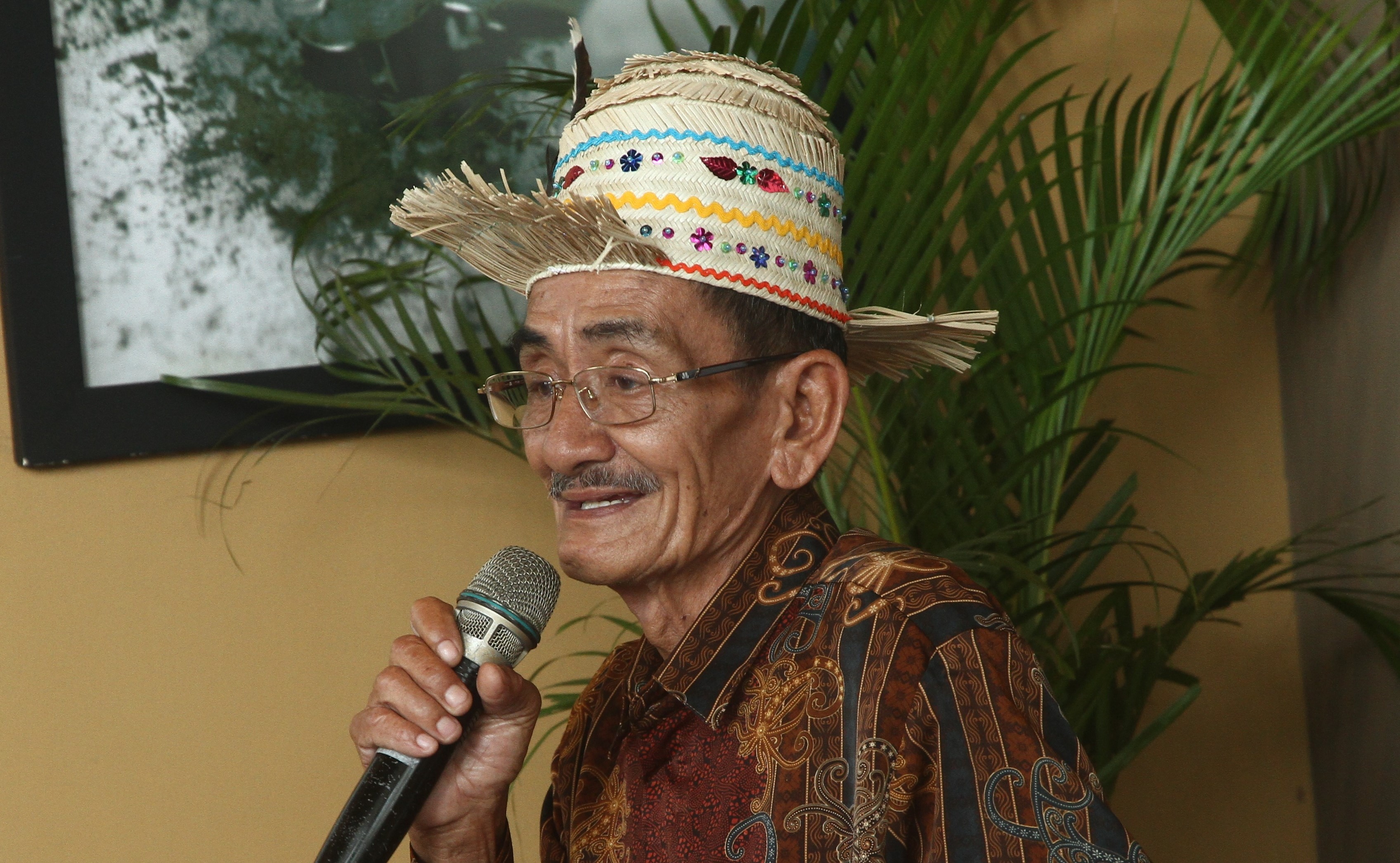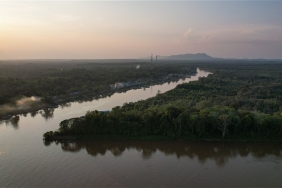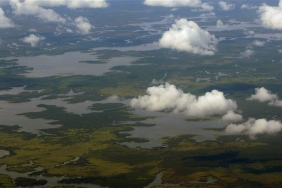ANYE APUI: THE LIFE OF A KENYAH CHIEF IN THE HEART OF BORNEO
(Adapted by Cristina Eghenter from the Life History of Anye Apui, Great Customary Chief of Hulu Bahau, Malinau Regency, North Kalimantan, Indonesia)
UNATIONAL INTERNATIONAL DAY OF INDIGENOUS PEOPLE
Tana Ulen: Conserving the Kenyah way
My father was a nobleman of high lineage. In his capacity as a respected and influential leader, he owned an area of native forest on the Nggeng River, near our new settlement at Long Alango (Upper Bahau). This area is rich in forest products, game and fish. However, people are not allowed to go there every day, hence the name tana ulen or "forbidden area."
Only when there is a special and crowded event such as a celebration or ceremony with many guests, the community is given permission by my father to go hunting and fishing in the Nggeng River area, where they are sure to get abundant results.
The tana ulen tradition of forest management from my ancestors continues today. As Kenyah people, we are very proud of our unique ownership and management system that has contributed to the sustainable management of forest resources in the Heart of Borneo. Today, customary institutions, not just noble families, administer and regulate tana ulen. In Long Alango, tana ulen belongs to the village community and there is a special committee to oversee it called Badan Pengurus Tana Ulen (BPTU).
Community leader and head of household with many responsibilities
In 1971, two years after my father's death, I was appointed to succeed him as Chief of Hulu Bahau. I was still very young to be a traditional chief, but this was the will of the people. I was fortunate in the beginning to have the advice of the elders who helped me decide cases or disputes between villages and individuals in a wise and appropriate way. It was also an opportunity to meet many people from Indonesia and abroad, the government, WWF and other NGOs, researchers and tourists. I learned a lot and received all the guests happily and to the best of my ability. One thing I learned from life is that the more you open yourself up and meet people, the more friends you will make from all over the world.
Development in the interior
The development of Hulu Balau and the welfare of the community has always been my priority. It is vital, however, to understand what we need with development, and what is good for us in the long term, rather than accepting any offer that is economically tempting. The hinterland communities came together to build the runway used by Mission Aviation Fellowship (MAF) with hard work and volunteerism. It took them five years and the runway was inaugurated in 1982 by the MAF pilots.
With the same kind of development "rights" in mind, I led a group of people from Long Alango on foot across the border into Sarawak to see if the people and companies there were willing to help build a road to the border. Roads are essential to breaking the isolation of the region and opening up access to markets and other essential services.
I continue to convey the community's aspirations to the government and the Ministry of Forestry and fight for economic development, but I know what kind of offers to refuse because they are not good for my community. For example, I was asked by a timber businessman to work with him to start logging activities in Hulu Bahau, and was promised a lot of money if I agreed.
""Yes, timber is 'gold', but this is not the kind of gold that is good for us. I want to protect the forest in my area, because the forest gives us, the Dayak people, everything we need. As much as possible, I support the national park that occupies the western part of Hulu Bahau"".
A traditional chief and environmental hero
My efforts to maintain tana ulen and customary regulations in support of sustainable forest management earned me a prestigious national award (Kalpataru) from the President of Indonesia in 2009, along with four other environmental heroes. On behalf of the importance of protecting the environment, artist and singer Nugie also came to see Long Alango and the Lalu Birai research station, and even dedicated a song to my village.
Because of my age and life experience, I want to advise the younger generation on many things. I would like to say this out loud, that we must support Malinau Regency's plan to become a Conservation Regency, and safeguard the future of us all by protecting the forests and wisely managing the natural capital we have. I still remember when I visited a small village, Batu Puteh in Sabah a few years ago. There was no forest left in the surrounding area except for a few pockets along the river. "They took the forest from us", the people there told me, "don't let them do that to you if you still have forest in the village. The forest is life."





